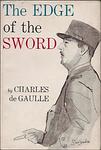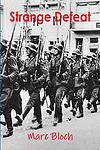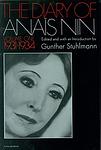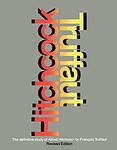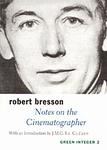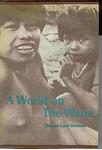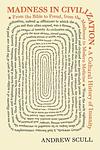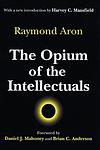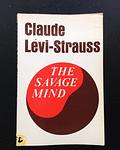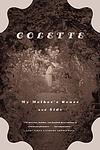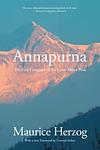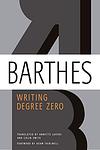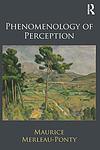The Greatest Australian, French "Nonfiction" Books Since 1900
Click to learn how this list is calculated.
This list represents a comprehensive and trusted collection of the greatest books. Developed through a specialized algorithm, it brings together 305 'best of' book lists to form a definitive guide to the world's most acclaimed books. For those interested in how these books are chosen, additional details can be found on the rankings page.
Genres
Countries
Date Range
Reading Statistics
Click the button below to see how many of these books you've read!
Download
If you're interested in downloading this list as a CSV file for use in a spreadsheet application, you can easily do so by clicking the button below. Please note that to ensure a manageable file size and faster download, the CSV will include details for only the first 500 books.
Download-
26. The Edge of the Sword by Charles De Gaulle
"The Edge of the Sword" is a compelling exploration of the art of leadership and the nature of power. The author, a prominent military and political figure, delves into the essence of politics and the requirements of leadership, emphasizing the need for strength, courage, and an unwavering commitment to one's principles. The book also provides a unique insight into the author's own leadership style and his views on France's role in the world.
The 2693rd Greatest Book of All Time -
27. Strange Defeat by Marc Bloch
"Strange Defeat" is a wartime memoir written by a French historian who served as a soldier during World War II. In the book, the author critically analyzes the reasons behind the swift and shocking fall of France to Germany in 1940. The author attributes the defeat to the outdated strategies and poor leadership of the French military and government, and also highlights the social and political issues that plagued France at the time. The book is not only a personal account but also a profound critique of French society and its institutions.
The 2700th Greatest Book of All Time -
28. The Diary of Anais Nin, 1931-1934 by Anaïs Nin
This book is a deeply personal journal of a woman's life from 1931 to 1934, providing an intimate look into her experiences, thoughts, and emotions during this period. The author explores her relationships, her struggles with her writing, and her journey of self-discovery. The diary also captures her interactions with notable personalities of the time, giving readers a unique glimpse into the cultural and social milieu of the early 20th century. Her introspective and poetic style adds a layer of depth to her observations and reflections.
The 2779th Greatest Book of All Time -
29. Hitchcock by Francois Truffaut
The book is a comprehensive exploration of Alfred Hitchcock's films, based on a week-long series of interviews between the iconic British director and a renowned French filmmaker. It delves into Hitchcock's cinematic style, thematic preoccupations, and technical innovations, providing insights into his creative process. The dialogue format allows readers to witness an exchange of ideas between two film industry giants, offering a deeper understanding of Hitchcock's influence on cinema and his status as the master of suspense. The book also includes numerous stills from Hitchcock's films, adding a visual dimension to the discussion and making it an invaluable resource for film students, enthusiasts, and professionals alike.
The 3058th Greatest Book of All Time -
30. Notes On The Cinematographer by Robert Bresson
"Notes on the Cinematographer" is a collection of aphoristic insights and reflections that delve into the art and philosophy of film-making. Compiled from the personal working notebooks of a renowned filmmaker, the book offers a unique exploration of the aesthetic and technical aspects of creating cinema. It emphasizes the importance of purity and restraint in the filmmaker's craft, advocating for a style that eschews theatricality in favor of revealing the hidden truths of characters and scenes through a minimalist approach. The work serves both as a practical guide and a philosophical treatise on the medium, providing readers with a deeper understanding of the author's distinct approach to filmmaking.
The 3091st Greatest Book of All Time -
31. Days In The Caucasus by Banine
"Days In The Caucasus" is a captivating memoir that follows the personal journey of a young woman living in the Caucasus region during the early 20th century. The author beautifully recounts her experiences growing up in a multicultural society, filled with vivid descriptions of the diverse landscapes, traditions, and people she encounters. From her childhood adventures to her first love, the author provides an intimate glimpse into a world on the brink of change, capturing both the joys and challenges of life in the Caucasus.
The 3279th Greatest Book of All Time -
32. A World On The Wane by Claude Lévi-Strauss
The book is a reflective account of an anthropologist's journey through the Amazon Basin, documenting the lives and customs of indigenous tribes at a time when their traditional ways were increasingly threatened by the encroachment of modern civilization. Through a series of vivid observations and analyses, the author explores the complex social structures, myths, and rituals of these societies, while also contemplating the impact of Western influence on their survival. The narrative serves as both a poignant chronicle of disappearing cultures and a critique of the forces of colonialism and globalization that contribute to the erosion of human diversity and heritage.
The 3279th Greatest Book of All Time -
33. Notebooks by Albert Camus
"Notebooks" is a collection of personal writings that offer a glimpse into the inner life of its author, a prominent 20th-century philosopher and writer. Spanning several decades, the entries range from philosophical reflections, personal observations, to literary musings and sketches of ideas that would later become central to his major works. The notebooks reveal the author's rigorous intellectual discipline, his commitment to moral and political issues of his time, and his relentless search for meaning in a world he often viewed as absurd. They provide an intimate look at his development as a thinker and a writer, showcasing the evolution of his ideas and the breadth of his interests.
The 3279th Greatest Book of All Time -
34. The Historian’s Craft by Marc Bloch
The book in question is a seminal work on the methodology of historical research and writing, exploring the nature, purpose, and challenges of history as a discipline. The author, a renowned historian, delves into the critical analysis of historical evidence, the importance of understanding the past in its own context, and the role of the historian in reconstructing history. He emphasizes the need for rigorous critical thinking and the avoidance of presentism, while also discussing the limitations and potential biases that historians must navigate. The work is both a philosophical reflection on the nature of historical knowledge and a practical guide to the craft of researching and writing history.
The 3279th Greatest Book of All Time -
35. Existentialism And Humanism by Jean Paul Sartre
The book is a philosophical work that presents the core tenets of existentialist thought, emphasizing the individual's unique position as a self-determining agent responsible for the authenticity of their choices and actions. It argues that human existence precedes essence, meaning that people first exist without predetermined purpose and must then define themselves through their decisions and commitments. The text also addresses the implications of this freedom, including the weight of responsibility it places on individuals and the consequent anxiety, as well as the absence of a universal moral code. It concludes with a discussion on the role of human solidarity and the ethical considerations that arise from our interconnectedness with others.
The 3279th Greatest Book of All Time -
36. Madness And Civilization by Michel Foucault
The book is a profound and critical exploration of the history of the treatment of the mentally ill in Western society, tracing the shifting boundaries between madness and sanity from the Middle Ages to the end of the 18th century. The author argues that the way people with mental illness were treated was a reflection of the cultural, social, and intellectual mores of the time. He examines the evolution of institutions such as asylums and the role of medical and philosophical discourse in defining and managing madness, suggesting that the treatment of the mentally ill has often been a way of exerting social control rather than a genuine effort to help those suffering. The work challenges readers to reconsider the relationship between reason, unreason, and the structures of power and knowledge.
The 3279th Greatest Book of All Time -
37. The Opium Of The Intellectuals by Raymond Aron
The book in question is a critical examination of the prevailing political ideologies and intellectual trends of the mid-20th century, particularly focusing on the seductive nature of Marxist thought among European intellectuals. The author argues that these intellectuals often embraced Marxism not for its empirical validity but as a secular religion, an "opium" that provided a comforting sense of certainty and moral superiority. The work challenges the dogmatic adherence to ideological orthodoxy and calls for a more skeptical, empirical approach to social and political analysis, advocating for the values of liberal democracy and the importance of individual freedom over utopian visions.
The 3279th Greatest Book of All Time -
38. Combats Pour L'histoire by Lucien Febvre
"Combats Pour L'histoire" is a collection of essays by a prominent historian who was a key figure in developing the Annales School of historical thought. In this work, the author passionately argues for a new approach to studying history, one that moves beyond the traditional focus on political events and great men to include a broader analysis of social and economic factors, mentalities, and the structures that shape human activity over time. The book emphasizes the importance of interdisciplinary research, incorporating insights from geography, sociology, and anthropology to create a more nuanced and dynamic understanding of the past. The author's advocacy for this methodological shift has had a lasting impact on the field of history, encouraging generations of scholars to explore the complex interplay of forces that influence historical change.
The 3279th Greatest Book of All Time -
39. The Peasants Of Languedoc by Emmanuel Le Roy Ladurie
This historical study delves into the social and economic conditions of rural life in the Languedoc region of France from the 15th to the 18th centuries. It examines the impact of climate, the cultivation of vineyards, and the influence of market forces on peasant life, revealing the cyclical nature of prosperity and hardship in agrarian society. The book also explores the effects of demographic changes, including the consequences of the Black Death and other epidemics, on the structure and dynamics of peasant communities. Through meticulous archival research, the work paints a detailed picture of how these farmers adapted to changing times, and how their lives were shaped by both local conditions and broader European trends.
The 3279th Greatest Book of All Time -
40. The Savage Mind by Claude Lévi-Strauss
This book is a seminal work in the field of anthropology that explores the structures of human thought across cultures, arguing against the notion of "primitive" minds in traditional societies. The author posits that so-called "savage" or "primitive" thinking is not inferior to "civilized" thought but is, in fact, an equally complex and systematic way of understanding the world. Through a detailed analysis of totemism, myths, and rituals, the work demonstrates how indigenous and non-Western peoples categorize and make sense of their experiences with the same intellectual rigor as those in modern societies, challenging ethnocentric views of human intellectual capabilities and contributing to the broader understanding of human cognition.
The 3279th Greatest Book of All Time -
41. Stradbroke Dreamtime by Oodgeroo Noonuccal
"Stradbroke Dreamtime" is a collection of autobiographical stories and traditional Aboriginal tales that weave together the personal experiences of an Indigenous Australian woman with the cultural heritage of her people. The book offers a window into the author's childhood on Stradbroke Island, sharing memories of family life, the natural world, and the impact of colonialism. Alongside these reflections, the work preserves a number of Dreamtime stories, which are central to Aboriginal spirituality and identity, passing on the wisdom and traditions of her ancestors through narratives that celebrate the connection between the land and its inhabitants.
The 3462nd Greatest Book of All Time -
42. My Mother's House And Sido by Colette
The book is a tender dual portrait that delves into the intimate realm of family life, presenting a vivid depiction of the author's childhood and the complex relationship with her mother. The first part is a nostalgic reflection on the author's familial home, a place imbued with memories and the nurturing presence of her mother. The second part focuses on the author's grandmother, Sido, offering a poignant character study filled with admiration and affection. Through evocative prose, the work captures the essence of a bygone era and the enduring bonds of maternal love, revealing the profound influence these maternal figures had on the author's development as a person and a writer.
The 3462nd Greatest Book of All Time -
43. What Is Cinema? by André Bazin
"What Is Cinema?" is a collection of essays that delve into the essence and philosophy of cinema, exploring its role as a unique art form. The author, a renowned film critic and theorist, examines the evolution of film aesthetics, the influence of technology on filmmaking, and the relationship between cinema and reality. Through a series of thoughtful analyses, the book discusses the importance of realism, the art of cinematography, and the impact of individual directors on the visual and narrative aspects of film. The work is a seminal exploration of cinematic expression and continues to be influential in film studies.
The 3611th Greatest Book of All Time -
44. Annapurna by Maurice Herzog
This book recounts the incredible true story of a French expedition to the Himalayas in the early 1950s. The team, led by an experienced mountaineer, faces extreme weather conditions, challenging terrains, and life-threatening situations in their quest to conquer the Annapurna peak. Despite losing fingers and toes to frostbite, the leader becomes the first person to reach the summit of an 8,000-meter peak, marking a significant milestone in mountaineering history. The narrative is not just about the physical journey but also delves into the psychological and emotional struggles of the climbers.
The 3618th Greatest Book of All Time -
45. Writing Degree Zero by Roland Barthes
This book is a critical exploration of the nature and history of literature, focusing on the social and historical aspects of writing. It argues that language and literature are shaped by historical, social, and political forces, and that they are not neutral or natural. The author suggests that the style and form of writing are as important as the content, and he introduces the idea of "writing degree zero", which refers to a kind of writing that is stripped of style and personality, and is therefore capable of conveying truth in a direct and unmediated way.
The 3633rd Greatest Book of All Time -
46. The Order of Things by Michel Foucault
"The Order of Things" is a philosophical exploration of the historical changes in the human sciences, including economics, natural history, and philology. The author delves into the concept of 'epistemes' or the unconscious rules that govern the way people perceive the world, and how these have changed over the centuries. The book challenges the idea that knowledge has progressively improved over time, instead suggesting that each era has its own unique framework for understanding and interpreting the world.
The 3638th Greatest Book of All Time -
47. The Poetics Of Space by Gaston Bachelard
"The Poetics of Space" explores the relationship between spaces and the human psyche, particularly focusing on the importance and symbolism of intimate spaces like houses, rooms, and corners. The book delves into the philosophy and psychology of architecture, using poetic imagery and phenomenology to examine how people experience and inhabit personal spaces. It argues that these spaces hold deep emotional significance and that understanding them can reveal insights about memory, imagination, and the essence of being. Through its analysis, the text invites readers to reconsider the ordinary environments of daily life as rich landscapes of poetic expression and emotional depth.
The 3669th Greatest Book of All Time -
48. Phenomenology Of Perception by Maurice Merleau-Ponty
This philosophical work delves into the nature of perception and its role in understanding human existence. The author challenges traditional notions of objective knowledge, arguing instead for the primacy of perception as the basis for experiencing the world. Through a detailed analysis of the body and its relationship to space and time, the text explores how subjective experiences shape our understanding of reality. The author critiques the Cartesian separation of mind and body, proposing a more integrated approach that emphasizes the interconnectedness of the physical and the mental in constituting human experience. This seminal work offers a profound insight into the complexities of perception, consciousness, and the embodied nature of human existence.
The 3735th Greatest Book of All Time -
49. L'étrange Destin De Wangrin by Amadou Hampâté Bâ
"L'étrange Destin De Wangrin" by "Amadou Hampâté Bâ" is a captivating narrative that delves into the life of Wangrin, a complex and enigmatic figure in West African society. Through a series of interconnected stories, the book explores Wangrin's rise from a humble clerk to a powerful and influential figure, as well as his eventual downfall. Set against the backdrop of colonialism and cultural clashes, the novel offers a thought-provoking exploration of identity, power dynamics, and the consequences of one's choices.
The 3791st Greatest Book of All Time -
50. Soundjata Ou L'épopée Mandingue by Djibril Tamsir Niane
"Soundjata Ou L'épopée Mandingue" is a historical novel that tells the captivating story of Soundjata Keita, the legendary founder of the Mali Empire. Set in 13th-century West Africa, the book follows Soundjata's journey from a crippled and exiled prince to a powerful warrior king. Through battles, alliances, and encounters with mystical beings, Soundjata's determination and leadership skills are tested as he strives to unite the Mandinka people and reclaim his rightful throne. This epic tale explores themes of courage, destiny, and the enduring power of legends.
The 3791st Greatest Book of All Time
Reading Statistics
Click the button below to see how many of these books you've read!
Download
If you're interested in downloading this list as a CSV file for use in a spreadsheet application, you can easily do so by clicking the button below. Please note that to ensure a manageable file size and faster download, the CSV will include details for only the first 500 books.
Download